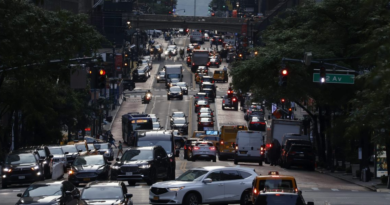Millennials are replaying their parents’ housing market journey as first-time buyers in their 30s flood into an unaffordable market
Baby boomers seemingly have it made in today’s housing market. They hold more housing wealth than any other generation and remain in the properties that millennials and younger generations so desperately want to buy, benefitting from the rock-bottom mortgage rates of the past few years. But they didn’t always have it so easy, and they’ve got more in common with the 30-somethings entering the current housing market than you might think.
In fact, many market watchers are observing that the housing landscape that greeted the boomers in the 1980s was quite similar to today’s. For instance, Mark Fleming, chief economist at Fortune 500 financial services company First American wrote in an October report titled “1980s Déjà Vu for the Housing Market” that today’s housing market “rhymes” with the 1980s, when millions of baby boomers came of homebuying age, leading to a wave of steady demand. Plus, mortgage rates peaked at 18% (which makes 8% sound less bad, right?) and, stop us if you’ve heard this before, inflation drove up home prices.
Now it’s millennials’ turn to battle such a housing market, and a new report by the National Association of Realtors (NAR) shows them doing just that, despite mortgage rates hovering around 8% and home prices that just refuse to drop. Like their parents, millennials aren’t letting a lemon of an economy keep them from making lemonade.
First-time buyers made up 32% of all home buyers between June 2022 and June 2023, according to NAR’s 2023 Profile of Home Buyers and Sellers, up from 26% last year (but still lower than the 38% annual average since 1981). NAR finds that the typical age for first-time home buyers is 35, which places them squarely in the millennial category, and repeat buyers at 58 years old.
“There is less competition in the housing market as those with lower incomes have dropped out,” Jessica Lautz, NAR deputy chief economist and vice president of research, tells Fortune. “The market is still difficult to enter with limited inventory, but higher income first-time buyers found a way into homeownership by having larger down payments.”
How much millennials need to make to break into the housing market
The current market is also reminiscent of the early ’80s in how unaffordable it has become: NAR’s report shows a hearty increase in the median household income for home buyers. This figure jumped almost 20% over the past year to $107,000, underscoring how expensive and out-of-reach home buying has gotten for younger generations. Indeed, the median millennial household pretax income was just $71,566 in 2020, according to the U.S. Census Bureau.
The typical millennial doesn’t make enough to break into the housing market. As median home prices have increased 121% nationwide since 1960, median household income has only increased 29%, according to Clever Real Estate.
“Home buyers in the last year had to have a higher income to be able to afford the housing market with the rise in mortgage interest rates and the rise in home prices,” Lautz says. “Buyers with lower incomes struggled to find affordable inventory and were priced out of the market.”
That makes homeownership an even more challenging goal considering that wages haven’t kept pace with the increase in the cost of buying a house.
“The financial bar for home ownership has been raised, naturally skewing the demographic to those who have the means to clear this elevated threshold,” Noah Rosenblatt, co-founder of UrbanDigs, a real estate data analytics company, tells Fortune. “It’s less about a broad increase in wealth and more about the filtering effect of heightened financial prerequisites for home buying.”
But even for those first-time homebuyers who were able to break into the housing market this year, many of them had to dip into other financial assets to make it happen. This past year, 22% of first-time buyers borrowed from their 401(k), stocks, IRA, pension, and/or cryptocurrency to enter the housing market, Lautz says.
Yet more first-time home buyers entered the housing market this year than last. Why? One explanation is that they could be flooding the market now to get ahead of housing prices and mortgage rates that may potentially grow even higher.
“There’s a sense that, having adjusted to the higher rates, buyers are eager to secure homes before the potential of even further rate increases,” Rosenblatt says. “In a sense, some first-time homebuyers may be taking a proactive approach in a market where waiting could mean facing even steeper costs.”
They may be suffering from the most millennial malady of them all: FOMO.
“There is a sense of urgency among buyers because of the tight inventory,” Frances Katzen, a real estate agent with Douglas Elliman in New York City, tells Fortune. “Many first time homebuyers, especially those feeling the sting of record high rental rates, are more willing to pay higher prices to secure a property.”




